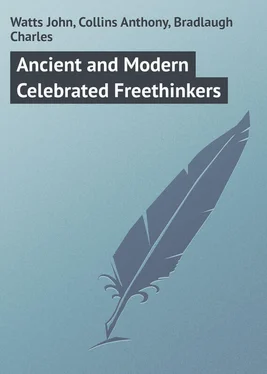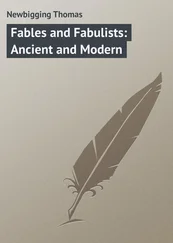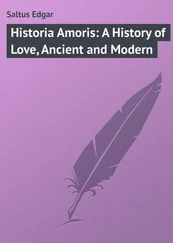Charles Bradlaugh - Ancient and Modern Celebrated Freethinkers
Здесь есть возможность читать онлайн «Charles Bradlaugh - Ancient and Modern Celebrated Freethinkers» — ознакомительный отрывок электронной книги совершенно бесплатно, а после прочтения отрывка купить полную версию. В некоторых случаях можно слушать аудио, скачать через торрент в формате fb2 и присутствует краткое содержание. ISBN: , Жанр: foreign_language, foreign_prose, на английском языке. Описание произведения, (предисловие) а так же отзывы посетителей доступны на портале библиотеки ЛибКат.
- Название:Ancient and Modern Celebrated Freethinkers
- Автор:
- Жанр:
- Год:неизвестен
- ISBN:http://www.gutenberg.org/ebooks/30200
- Рейтинг книги:5 / 5. Голосов: 1
-
Избранное:Добавить в избранное
- Отзывы:
-
Ваша оценка:
- 100
- 1
- 2
- 3
- 4
- 5
Ancient and Modern Celebrated Freethinkers: краткое содержание, описание и аннотация
Предлагаем к чтению аннотацию, описание, краткое содержание или предисловие (зависит от того, что написал сам автор книги «Ancient and Modern Celebrated Freethinkers»). Если вы не нашли необходимую информацию о книге — напишите в комментариях, мы постараемся отыскать её.
Ancient and Modern Celebrated Freethinkers — читать онлайн ознакомительный отрывок
Ниже представлен текст книги, разбитый по страницам. Система сохранения места последней прочитанной страницы, позволяет с удобством читать онлайн бесплатно книгу «Ancient and Modern Celebrated Freethinkers», без необходимости каждый раз заново искать на чём Вы остановились. Поставьте закладку, и сможете в любой момент перейти на страницу, на которой закончили чтение.
Интервал:
Закладка:
* Leviathan. Ed. 1651.
** Dissertation on the Progress of Ethical Science, p. 41.
Such are the words of one of Hobbes's most powerful opponents. Dr. Warburton says, "The philosopher of Malmesbury was the terror of the last age, as Tin-dal and Collins are of this. The press sweats with controversy; and every young churchman militant would try his arms in thundering on Hobbes's steel cap." This is a modest acknowledgment of the power of Hobbes, from the most turbulent divine of the eighteenth century.
Victor Comyin gives the following as his view of the philosophy of Hobbes: – "There is no other certain evidence than that of the senses. The evidence of the senses attests only the existence of bodies; then there is no existence save that of bodies, and philosophy is only the science of bodies.
"There are two sorts of bodies: 1st, Natural bodies, which are the theatre of a multitude of regular phenomena, because they take place by virtue of fixed laws, as the bodies with which physics are occupied; 2nd, Moral and political bodies, societies which constantly change and are subject to variable laws.
"Hobbes's system of physics is that of Democritus, the atomistic and corpuscular of the Ionic school.
"His metaphysics are its corollary; all the phenomena which pass in the consciousness have their source in the organization, of which the consciousness in itself is simply a result. All the ideas come from the senses. To think, is to calculate; and intelligence is nothing else than an arithmetic. As we do not calculate with out signs, we do not think without words; the truth of the thought is in the relation of the words among themselves, and metaphysics are reduced to a perfect language. Hobbes is completely a nominalist. With Hobbes there are no other than contingent ideas; the finite alone can be conceived; the infinite is only a negation of the finite; beyond that it is a mere word invented to honor a being whom faith alone can reach. The idea of good and evil has no other foundation than agreeable or disagreeable sensations; to agreeable or disagreeable sensation it is impossible to apply any. other law than escape from the one and search after the other; hence the morality of Hobbes, which is the foundation of his politics. Man is capable of enjoying and of suffering; his only law is to suffer as little, and enjoy as much, as possible. Since such is his only law, he has all the rights that this law confers upon him; he may do anything for his preservation and his happiness; he has the right to sacrifice everything to himself. Behold? then, men upon this earth, where the objects of desire are not superabundant, all possessing equal rights to whatever may be agreeable or useful to them, by virtue of the same capacity for enjoyment and suffering. This is a state of nature, which is nothing less than a state of war, the anarchy of the passions, a combat in which every man is arrayed against his neighbor. But this state being opposed to the happiness of the majority of individuals who share it, utility, the offspring of egotism itself, demands its exchange for another, to wit, the social state. The social state is the institution of a public power, stronger than all individuals, capable of making peace succeed war, and imposing on all the accomplishment of whatever it shall have judged to be useful, that is, just."
Before we dismiss the father of Freethought from our notice, there remains a tribute of respect to be paid to one whom it is our duty to associate with the author of the "Leviathan," and who has but just passed away – one man amongst the British aristocracy with the disposition of a tribune of the people, coupled with thoughts at once elevated and free, and a position which rendered him of essential service to struggling opinion. This man saw the greatness, the profound depth, the attic style, and the immense importance of the works of Hobbes, along with their systematic depreciation by those whose duty it should be to explain them, especially at a time when those works were not reprinted, and the public were obliged to glean their character from the refutations (so called) by mangled quotations, and a distorted meaning. Impelled by this thought, and anxious to protect the memory of a philosopher, his devoted disciple, at a cost of £10,000, translated the Latin, and edited the English works of Hobbes, in a manner worthy alike of the genius of the author, and the discernment of his editor. For this kindness, a seat in Parliament was lost by the organization of the clergy in Cornwall. The name of this man was Sir William Molesworth. Let Freethinkers cherish the memory of their benefactor.
We now take our leave of Thomas Hobbes. He had not the chivalry of Herbert; the vivacity of Raleigh; the cumulative power of Bacon; or the winning policy of Locke. If his physical deformities prevented him from being as daring as Vane, he was as bold in thought and expression as either Descartes, or his young friend Blount. He gave birth to the brilliant constellation of genius in the time of Queen Anne. He did not live to see his system extensively promulgated; but his principles moulded the character of the men who formed the revolution of 1688, equally as much as Hume established the Scotch and German schools of philosophy; and Voltaire laid the train by which the French Revolution was proclaimed. Peace to his memory! It was a stormy struggle during his life; its frowns cannot hurt him now. Could we believe in the idea of a future life, we should invoke his blessings on our cause. That cause which for near two hundred years has successfully struggled into birth, to youth, and maturity. Striking down in its onward course superstitions which hath grown with centuries, and where it does not exterminate them, it supplies a purer atmosphere, and extracts the upas-sting which has laid low so many, and which must yet be finally exterminated. The day is rapidly dawning when our only deities will be the works of genius, and our only prayer the remembrance of our most illustrious chiefs.
A.C.
LORD BOLINGBROKE
Henry St. John, Lord Bolingbroke, was born in his family seat at Battersea, on the 1st of October 1672, and died there on November 15th, 1751, in his 79th year. He was educated by a clergyman in an unnatural manner, and speedily developed himself accordingly. When he left Oxford, he was one of the handsomest men of the day – his majestic figure, refined address, dazzling wit, and classic eloquence, made him irresistibly the "first gentleman in Europe." Until his twenty-fourth year, he was renowned more for the graces of his person, and the fascination of his wild exploits, rather than possessing a due regard to his rank and abilities. His conduct, however, was completely changed when he became a Member of Parliament. The hopes of his friends were resuscitated when they discovered the aptitude for business – the ready eloquence, and the sound reasoning of the once wild St. John. He soon became the hardest worker and the leader of the House of Commons. The expectations of the nation rose high when night after night he spoke with the vivacity of a poet, and the profundity of a veteran statesman on public affairs. In 1704, he received the seals as Secretary-of-War, and was mainly instrumental in gaining Marlborough's victories, by the activity with which he supplied the English General with munitions of war. On the ascendency of the Whigs, St. John resigned his office, and retired into privacy for two years, when the Whig administration was destroyed, and St. John re-appeared as Secretary for Foreign Affairs. His greatest work now was the negotiation of the treaty of Utrecht. This treaty was signed by St. John (then Lord Bolingbroke,) he being sent to Paris as the British Plenipotentiary, and was hailed by the Parisians as a guardian angel. To such an extent was this feeling manifested, that when he visited the theatres every one rose to welcome him. So long as Queen Anne lived, Bolingbroke's influence was paramount, but associated with him was the Earl of Oxford, in opposition to the Whig party, and serious differences had arisen between the rivals. Oxford-was dismissed four days before the Queen's death, and Bolingbroke officiated in his place, until Oxford's vacancy was filled, which all expected would be given to himself. A stormy debate in the Privy Council so agitated the Queen, that it shortened her life, and the Council recommended the Earl of Shrewsbury as Premier, and with him the Whigs.
Читать дальшеИнтервал:
Закладка:
Похожие книги на «Ancient and Modern Celebrated Freethinkers»
Представляем Вашему вниманию похожие книги на «Ancient and Modern Celebrated Freethinkers» списком для выбора. Мы отобрали схожую по названию и смыслу литературу в надежде предоставить читателям больше вариантов отыскать новые, интересные, ещё непрочитанные произведения.
Обсуждение, отзывы о книге «Ancient and Modern Celebrated Freethinkers» и просто собственные мнения читателей. Оставьте ваши комментарии, напишите, что Вы думаете о произведении, его смысле или главных героях. Укажите что конкретно понравилось, а что нет, и почему Вы так считаете.












